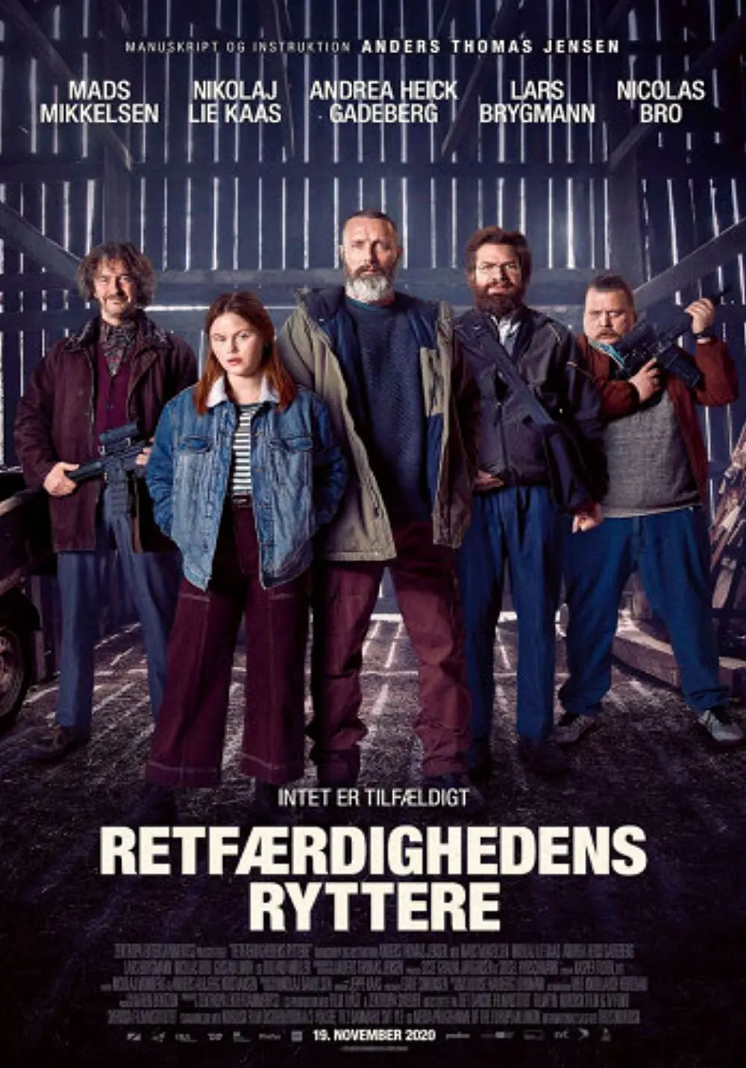Unge Andersen After the fairy tale

What comes after the fairy tale? When the young trees have become pale, when the streams have entered the sea, when the most tender buds have blossomed, when the purest eyes have finally dissipated, we still remember the most crystalline dewdrop in the morning, the most refreshing wisp of air between our nostrils, and those most carefully woven stories?
Hans Christian Anderson, unlike the cunningly hidden darkness of the Brothers Grimm, is a man whose purity moves the gritty world.
The beginning of the film abruptly pushes a young face to the front. I can’t help but to lean back slightly, still instinctively rejecting, still rejecting any figurative Andersen. In the heart of every person who grows up from a child, there is a vague and sacred Andersen strike, emanating a serene glow.
But this face is so Danish, so ordinary and so special. 17 years old, slender, paper-white face, fine but not delicate features, and a childish, absorbed expression that flashes every now and then. In the muddy and dirty streets of Copenhagen, amidst the clutter of vendors lining the streets, it is surprising that he can also be completely immersed in his own imagination, in a world that is wonderful beyond belief.
This is still the most complete Andersen yet, complete, white as a sheet, young man bent on becoming a writer of renown, holding his manuscript around the wall. In the courteous evening society of high society, he wore a shabby coat and was at his wits’ end. And yet so full of childish courage. He is so fragile and helpless that the slightest mockery or injury from the world is enough to make him cry without warning, but the next moment he is reborn with a lot of inexplicable hope and joy from his fantastic fantasies. Such mood swings are not the nervousness of adults, but the natural flow of a child’s most instinctive feelings. He was so vibrant, so strange, glowing in the cold and dirty dark night of Copenhagen with a strange glow.
But he himself did not realize this kind of glow, the councilor Colin noticed this strange young man, but did not really understand his glow. He was determined to nurture this half-grown boy who had to kneel down and give thanks when he was excited, and his decision finally allowed the young man, who did not know what real pain was, to go through a phoenix-like nirvana.
I’ve been wondering about the role of the principal. At first glance, I thought he was a guiding teacher, but then I couldn’t stand his teaching methods and wondered whether his intentions for Hans were good or evil.
Hans does not spend much time in the isolated school. 17 years old, he does not know even the most basic four operations, nor does he know where the capital of Egypt is, let alone the dreaded Latin. He put up pictures of Shakespeare in his cramped room, along with an old mirror, in which looking at his happy face seemed to inspire efforts toward Shakespeare’s heights. He was so intent on writing poetry that his pencil rustled on the paper, dropping the principal’s Latin variant to nothing. So big, sitting among a group of schoolchildren, he actually wore the same expression as them, and even more than them, he persisted in twisting against such demoralizing teaching.
But Hans made a good friend, the small, short, silent, 10-year-old Tuk, who had the intelligent and precocious face of an almost German child. He spent the middle of the night reading those heavy books on mechanical physics. The principal said that he had not seen Tuk smile since the day he picked him up. But on the golden sunlit hillside, the small waterfall reflected the beautiful glow, Tuk and Hans leaned against the tree and said those beautiful words, Hans began to tell fairy tales, so Tuk’s eyes began to shine, his smile, so lightly, jumped out. 17-year-old Hans, and the mature Tuk, thus became friends. See Hans’s white imaginary wings, can see the flight of Hans’s soul, he even gave Hans a precious few seconds of the feeling of flight. “I have a friend of sorts, young Andersen.” Tuk turned around on the hillside and smiled faintly in the light of the setting sun at the joyful Hans.
However, after Hans repeatedly refused to enter the world of adult reason, the principal resorted to cruel methods. Hans’ punishment falls on Tuk every time he contradicts the principal. The good Tuk was slapped by two heavy slaps out of his nose, the good Tuk was whipped into a cold sweat, a bloody back, the good Tuk was punished by filling a cart with a cart of turnips, tired of coughing and wheezing. And all this, but because Hans is not willing to submit to the rational reality of the world, he can not control the desire to struggle and want to resist. He clumsily tried to protect his precious friend, but let Tuk suffered more misfortune. The company’s main business is to provide a wide range of products and services to its customers. The small Tuk quietly said, “Tell me a fairy tale, Andersen. So in the shifting lights, Hans began to say those beautiful words, little Tuk with a smile on his face, pale sleep in the sweet story.
Hans finally realized the powerlessness of his words and finally discovered the secret woodcut world of his crazy grandfather when it was, as we know, too late. Grandpa picked a wooden apple and gave it to Hans, saying, “Remember, you have to find your way in the dark.”
The young Andersen darted back, only to be greeted by Tuk’s demise. Such a small, beautiful and strong life. The principal’s extreme action finally became a nightmare that haunted Hans for the rest of his life. He could not get rid of his own guilt, nor could he face the cold, cold world, his poems, his fragile beauty shattered into nothing. The young Andersen calmly recited the lengthy Latin anagram and jumped into the rushing river.
But still the power of Tuk. Blue underwater, floating bubbles, Tuk sat there, took a look at the sinking Andersen with his eyes and said: Yes it is beautiful here, if you do not go back, then by who to describe such beauty to the world?
After such pain and self-recrimination, Hans finally found what Tuk said upforce, back to earth. He opened those big rough hands, slowly and carefully gestured, and the words that came out of his mouth were finally so beautiful that they moved the principal to tears.
Until he was old, Hans still cared about getting Tuk’s forgiveness, and more applause and honors for him still regarded as nothing. He wanted to see, just that small, calm and old Tuk sitting on the windowsill, blooming a pure smile, shaking a leg and said: young Andersen it.
Hans Christian Anderson, only Denmark can have such an angel Hans who penetrates the pain of life and spreads hope and beauty, and only Denmark can film such a holy and indescribable human relationship between Hans and Tuk. Only Denmark can capture such a holy and indescribable human feeling between Hans and Tuk. Transparent, shining with the beauty of life’s initial simplicity.
What was before the fairy tale, and what is after the fairy tale. The young Andersen held the woodcut apple in Tuk’s hand, and they both knew that the most simple love.




